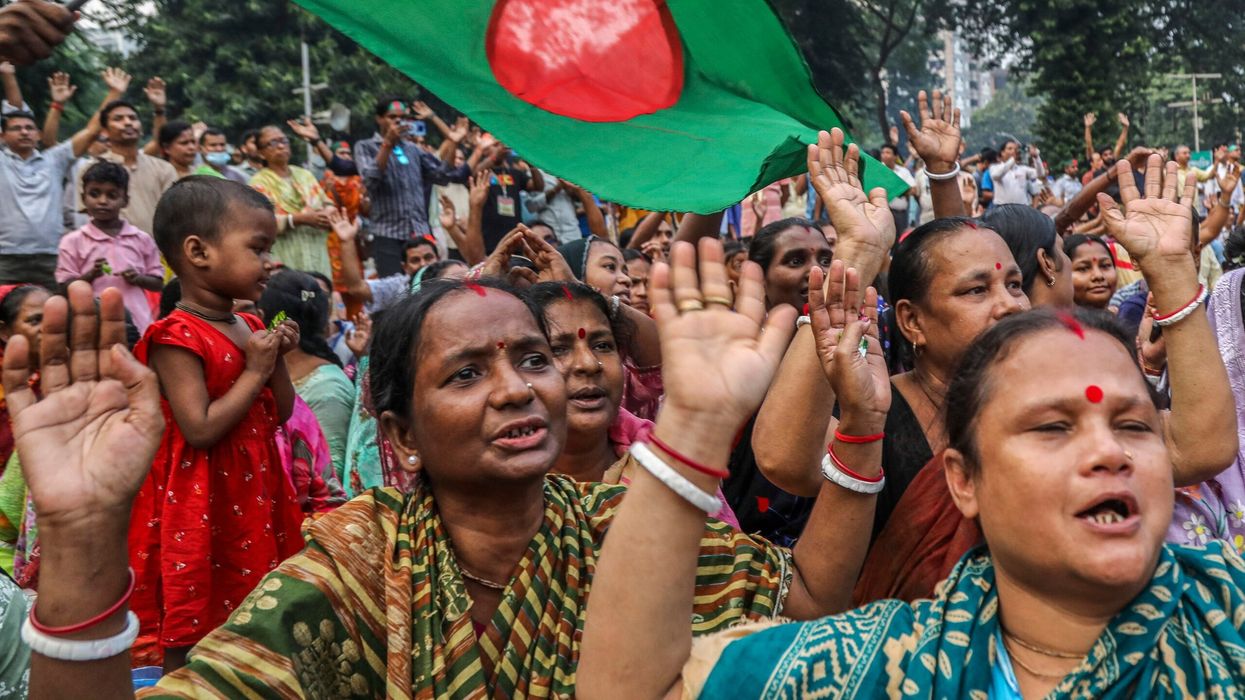HUNDREDS marched in Dhaka last Saturday (2) to demand protections for Hindus and other minorities who say they have suffered violence and threats since the ouster of former prime minister Sheikh Hasina.
Hasina’s toppling in an August student-led uprising saw a spate of reprisals on Hindus, who were seen as disproportionate supporters of her regime.
The caretaker government that replaced her, led by Nobel Prize winner, Muhammad Yunus, has acknowledged and condemned attacks on Hindus, but said in many cases they were motivated by politics rather than religion.
Regular protests in the months since claim that attacks are continuing and have demanded action from Yunus’ administration, an “advisory council” tasked with implementing democratic reforms and staging fresh elections.
“It’s deeply regrettable that the council of advisors do not acknowledge the sufferings minorities have endured,” Hindu civic leader Charu Chandra Das Brahmachari said.
“I have witnessed the atrocities against them – their temples, businesses, and homes.”
Protest organisers have urged the interim government to introduce a law to protect minorities and mandate a minimum share of minority representation in government, among other demands.
Tensions were inflamed by the filing of sedition charges last week against 19 people who participated in a minority rights rally in the port city of Chittagong.
The group was accused of disrespecting the Bangladeshi national flag by hoisting a saffron flag – the emblematic colour of the Hindu faith – to fly above it. “Framing our leaders with false charges, like sedition, has made us sceptical of the government’s intentions,” protest member Chiranjan Goswami said.
Hindus are the largest minority faith in Bangladesh, accounting for around eight per cent of the population.
Attacks have also been reported on Sufi shrines, with suspicion falling on Islamists seeking to curb alternative expressions of the Muslim faith.
Last Saturday’s demonstration came a day after 10,000 people attended a similar rally in Chittagong.
Minority leaders have pledged to hold more protests in the coming weeks. Hasina fled by helicopter to India in August as protesters flooded Dhaka’s streets in a dramatic end to her rule.






 Homegrown marks a new moment for South Asian music talent in the UK Instagram/playbackcreates
Homegrown marks a new moment for South Asian music talent in the UK Instagram/playbackcreates 






